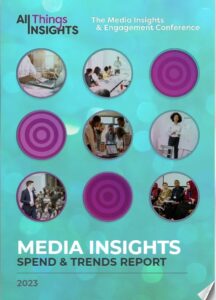Hritzuk first outlines some of the limits we must impose on marketing, from both a financial and an effectiveness standpoint. It doesn’t make sense to market all content equally – firstly, because no company can afford it. Companies should strive to be efficient in their marketing, to reach potential audiences in a way that doesn’t feel cumbersome or time-consuming. On the other hand, if the marketing is overly truncated, viewers will spend too much time scrolling and deciding, and wind up having less time available to actually enjoy the service they’re paying for. Hritzuk is interested in, as she puts it, trying to “facilitate the decision journey.”
This line of thinking can also be extended to how brands like Hulu and Netflix approach creating their content as well. During the height of the pandemic, money was thrown into developing new shows and putting as many options in front of the viewer as possible. Hritzuk observes that companies may be starting to rein that approach in – not only because it is financially unsustainable, but it also creates “choice overload” in the consumer, viewers will easily become fatigued by the sheer amount of options there are and ultimately choose nothing. The goal should not be to make a massive amount of content of varying levels of quality, but to make great content, and make viewers aware of what it is and how to find it.
So how do we find that balance between creating high-quality content and marketing it effectively? Hritzuk’s work has pointed to the most influential type of advertisement for a series or movie: the trailer. Consumers still want to get a sample of the content they’re going to watch, and trailers are a great vehicle for that. What makes them an efficient form of advertisement, Hritzuk notes, is that they provide a sense of the overall feel of the movie or show and even a bit of a synopsis, so they make a great first touch point for consumers who have never heard of a piece of content before. But they’re also typically the last touch point a consumer sees before starting to watch. This is just one example of an efficient form of marketing that uses resources wisely to reach a potential audience, so more money can go back into developing great content.
Contributors
-

Seth Adler heads up All Things Insights & All Things Innovation. He has spent his career bringing people together around content. He has a dynamic background producing events, podcasts, video, and the written word.
View all posts -








































































































































